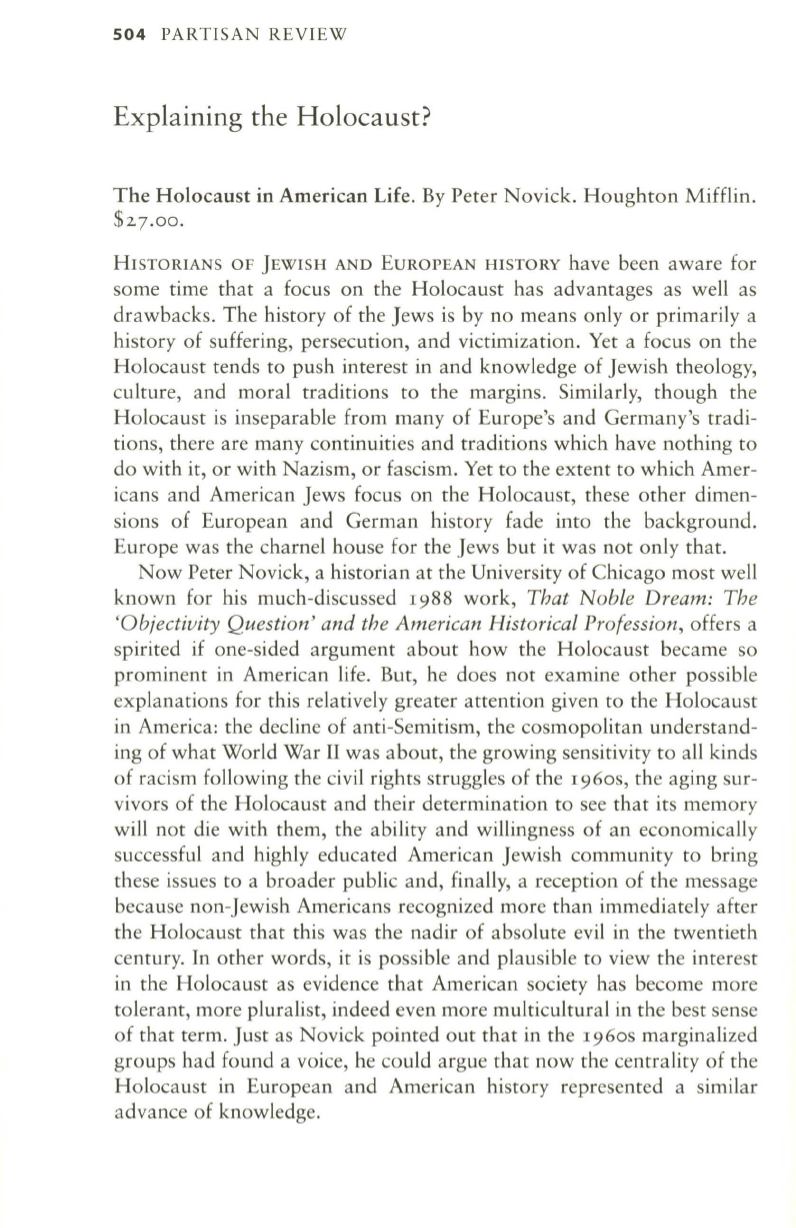
504
PARTISAN REVIEW
Explaining the Holocaust?
The Holocaust in American Life. By Peter Novick. Houghton Mifflin.
$27 .
00 .
HISTORIANS OF JEWISH AND EUROPEAN HISTORY have been aware for
some time that a focus on the Holocaust has advantages as well as
drawbacks. The history of the Jews is by no means only or primarily a
history of suffering, persecution, and victimization . Yet a focus on the
Holocaust tends to push interest in and knowledge of Jewish theology,
culture, and moral traditions to the margins. Similarly, though the
Holocaust is inseparable from many of Europe's and Germany's tradi–
tions, there are many continuities and traditions which have nothing to
do with it, or with Nazism, or fascism. Yet to the extent to which Amer–
icans and American Jews focus on the Holocaust, these other dimen–
sions of European and German history fade into the background.
Europe was the charnel house for the Jews but it was not only that.
Now Peter Novick, a historian at the University of Chicago most well
known for his much-discussed 1988 work,
That Noble Dream: The
'Objectivity Question' and the American Historical Profession,
offers a
spirited if one-sided argument about how the Holocaust became so
prominent in American life. But, he does not examine other possible
explanations for this relatively greater attention given to the Holocaust
in America: the decline of anti-Semitism, the cosmopolitan understand–
ing of what World War II was about, the growing sensitivity to all kinds
of racism following the civil rights struggles of the 1960s, the aging sur–
vivors of the Holocaust and their determination to see that its memory
will not die with them, the ability and willingness of an economically
successful and highly educated American Jewish community to bring
these issues to a broader public and, finally, a reception of the message
because non-Jewish Americans recognized more than immediately after
the Holocaust that this was the nadir of absolute evil in the twentieth
century. In other words, it is possible and plausible to view the interest
in the Holocaust as evidence that American society has become more
tolerant, more pluralist, indeed even more multicultural in the best sense
of that term. Just as Novick pointed out that in the 1960s marginalized
groups had found a voice, he could argue that now the centrality of the
Holocaust in European and American history represented a similar
advance of knowledge.


